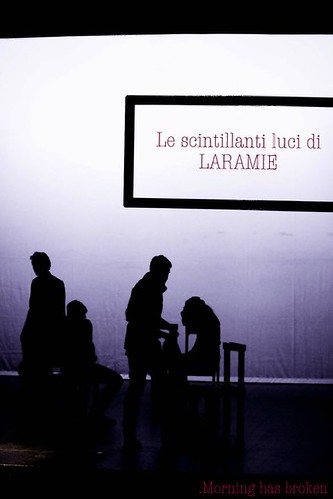Being the First Part,
Regarding the Straw and the Plank
Regarding the Straw and the Plank
A couple of years ago, my Ph. D program requirements led me to take a class on composition and ethnography with our program director. Part of the requirements of the class was to do a short qualitative analysis on some kind of literacy topic, and if there's one thing I've figured out from going through the rigmarole of IRB supervision and preparing for a qualitative study, it's that you should always distrust the self.
That may sound paranoid, but it makes a lot of sense for a discipline that requires the researcher to observe and interact with people or cultures. If you are an outsider, you might have different values or ways of understanding that hamper your ability to understand what's valuable or important in the culture you study. You might not know what to look for beneath the surface. If you grew up with the people or cultures you're studying, however, sometimes that can give you blind spots or make you reluctant to draw negative conclusions. Both of these possibilities require the researcher to stop, look at their own motives and cultural values, and understand that those worldviews or personal experiences will color their observations.
Hell, let's be honest-- the first nine months of this blog were basically just a really, really long bracketing interview to hash out my motives for studying this play. The last thing I can do is just assume that I've got it all figured out and that I'm completely on the clear because I never am. I always have motives. I always have to accept that objectivity is impossible for me due to my personal connection to the play and events, and the best I can do is to mistrust my own conclusions and force myself to look at all the angles. And I will still screw up.
And so, how does this apply to Tectonic Theater? Some of them (like Stephen Belber) show themselves to be pretty ambivalent and angsty about this process, and boy, do I appreciate that; it means they're concerned about their relationship to their interviewees. Nevertheless, I think that, as a company, sometimes they believe in their mission so much that they just know what they're doing is the right thing. That's where maybe they slipped up a little when it came to giving a full, well-rounded portrayal of Laramie: they immediately saw the right answer and ran with it.
And so, I would like to proceed to the second charge in the Airing of Grievances, which is related to the first:
2. Failure to Maintain Self-Loathing
Okay, so that's a little harsh, but "Failure to Maintain Self-Referentiality" or "Failure to Bracket" just sounded too academic. Basically, I'm just saying that maybe they believed in their mission a little too much or didn't stay suspicious enough of their own motives to question if they were getting too focused on the wrong thing. So, here we go, and let's see what we find-- just remember, ladies and gents, to keep a healthy self-doubt about your view of western culture and Tectonic's motives, too!
* * *











